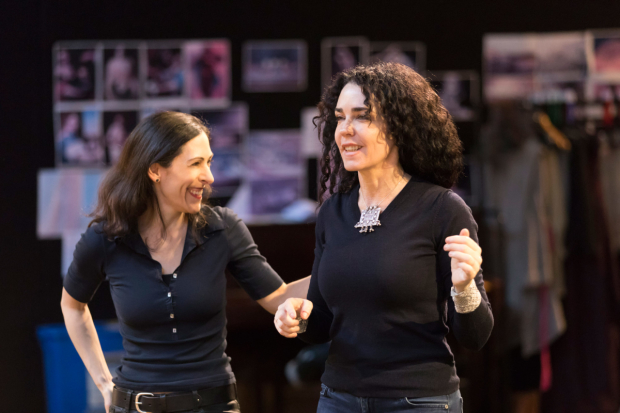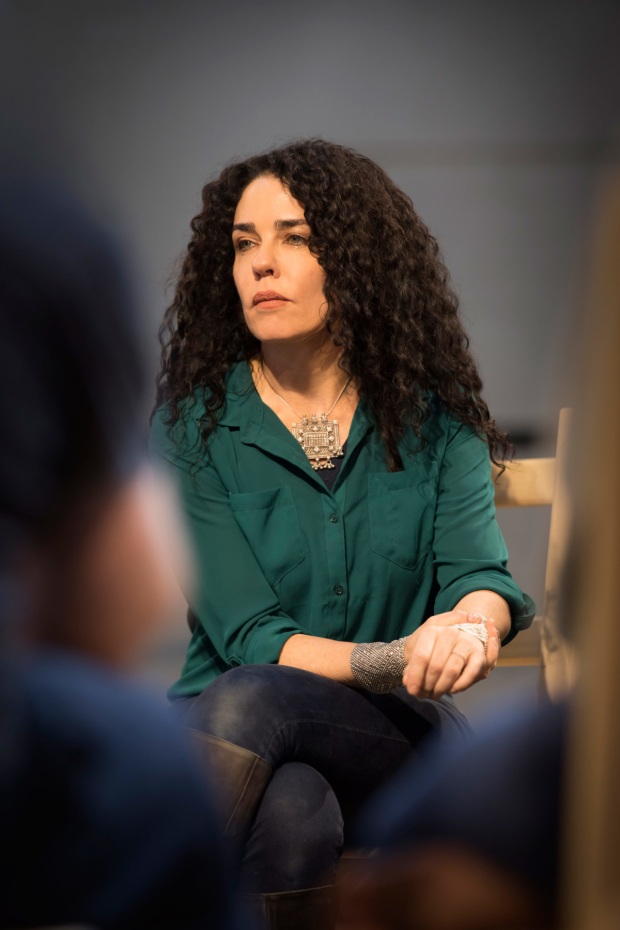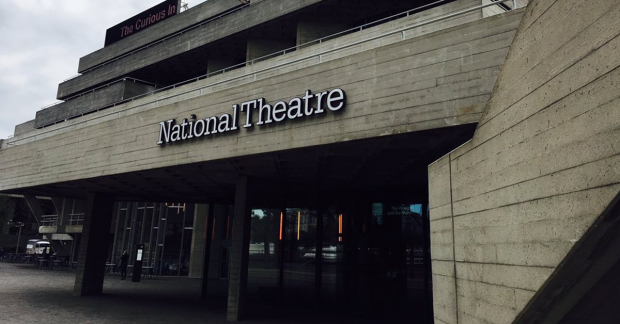Yaël Farber: the director re-writing the story of Salome

© Johan Persson
I first came across the director and writer Yaël Farber when I worked on an edit of her book of three South African testimonial plays, Theatre as Witness. She was abroad, working on a show, and our conversations were regularly punctuated by the sweet sounds made by her little girl, then a newborn baby bundle, now nine years-old. How she managed to stage a show away from home, work on a book and also be a mum was astonishing to me back then: a 24 year-old who could barely organise herself a packed lunch.
That restless, can-do passion is still with the 46 year-old Farber, who has created some of the most remarkable theatre work you could find anywhere in the world. In 2012 she astounded us with an intense and brooding Mies Julie, an adaptation of Strindberg’s Miss Julie set in South Africa. In 2014, Nirbhaya told the true-life story of a violent gang-rape in Delhi and sent shock waves through audiences in Edinburgh. The Crucible, starring Richard Armitage at the Old Vic was one of the best stagings of that play I have seen, while last year’s production of Lorraine Hansberry’s Les Blancs was dark, intense and extraordinary.
After Les Blancs – which featured a brilliant performance from Danny Sapani at its heart – it was never going to be long before the National Theatre invited her back. And back she is only a year later, this time tackling the tale of Salome. Siren? Temptress? Ingenue? Not quite. As she often does in her work, Farber will be realigning our perceptions – offering a new angle on a story which has been told over and over again for centuries.

© Johan Persson
"I knew I wanted to do something around the story because I was intrigued by this woman," she says to me in the National Theatre press office’s snug ahead of opening night. "We’ve projected so much onto her, and what she did was change the course of history, but we don’t even really know her name."
The most widely accepted version of Salome is what the Bible puts forward: she demanded the head of John the Baptist after dancing the Dance of the Seven Veils for her mother and King Herod. But, says Farber, her story is not necessarily the one we all know. "[Society has] stripped her of any kind of agenda or of political acumen. The first thing I wanted to do was to place her at the centre of her own story."
This is the basis for Farber’s Salome, an attempt to 're-position us' in relation to a well-told tale. "I consider every story to be an invention, from the Bible to theatre to the history we receive, history is always from the perspective of the victor. I am not saying my version is truth, I am just saying this is another [version]," she says.
For Farber, Salome is a woman living in an occupied Judea: "You have to look at the society she’s in, [it’s then that] you see these were people under duress. She is a woman who represents women all around the world who have fought for the freedom of their people and got erased in the retelling."
Farber’s version of Salome first opened in Washington DC in 2015, but what audiences will see at the National Theatre will not be the same. The piece has been through a re-write and Farber sees the production in Washington as "an extraordinary first stage of development". "It’s not a remount," she explains, "I work so much with who is in the room with me." From Washington she has brought four performers with her Olwen Fouere, Ramzi Choukair, Syrian singer Lubana Al Quntar and Shahar Isaac, but the rest are new.
This is key to understanding why her staging at the NT will be so different to that in Washington. Farber works with people who are not just superb performers, but who have a unique engagement with the work itself. "I am always looking for people who are in one way or another deeply political. I’m fired up by more than just trying to get a cracking good show on."
Political oppression, suppression of voice and of story – these are all themes which crop up time and time again in Farber’s work. Which, I suggest to her, must stem from her experience growing up in South Africa. Her reply has a characteristic enigmatic eloquence, "Would I be who I am if I grew up in London?" she asks, "Possibly, but we are all the product of environments and we are moved by what made our parents weep – or what didn’t make them weep."
At the beginning of her career in South Africa, she was set on her true course by Lara Foot Newton, protégée of Barney Simon at the Market Theatre, who told her to "stop being a crap actress and be a great director". And she did. Now she cites only two places where she can invest with who she is: directing and motherhood. We have a lot to thank Foot Newton for. Don't just take my word for it, get to Salome when it opens next week. It might just blow your mind.
Salome runs at the National Theatre from 9 May to 15 July.











